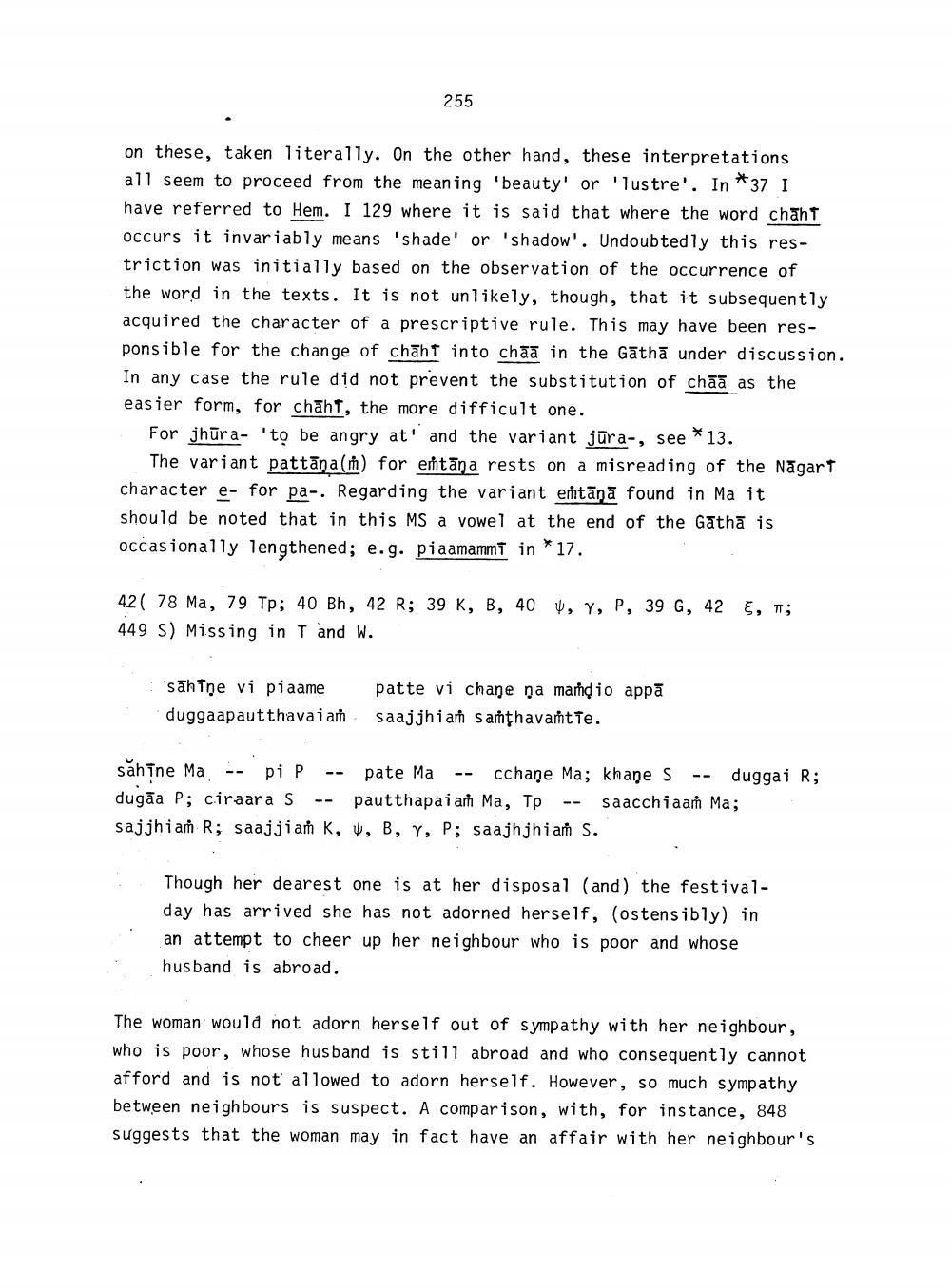________________
255
on these, taken literally. On the other hand, these interpretations all seem to proceed from the meaning 'beauty' or 'lustre'. In *37 I have referred to Hem. I 129 where it is said that where the word chaht occurs it invariably means 'shade' or 'shadow'. Undoubtedly this restriction was initially based on the observation of the occurrence of the word in the texts. It is not unlikely, though, that it subsequently acquired the character of a prescriptive rule. This may have been responsible for the change of chāht into chaa in the Gathā under discussion. In any case the rule did not prevent the substitution of chāā as the easier form, for chāht, the more difficult one.
For jhūra- 'to be angry at' and the variant jūra-, see *13.
The variant pattāna(m) for entāṇa rests on a misreading of the Nagart character e- for pa-. Regarding the variant entāṇā found in Ma it should be noted that in this MS a vowel at the end of the Gatha is occasionally lengthened; e.g. piaamammt in * 17.
,
;
421 78 Ma, 79 Tp; 40 Bh, 42 R; 39 K, B, 40 V, Y, P, 39 G, 42 449 S) Missing in T and W.
sahtne vi piaame duggaapautthavai am
patte vi chane na madio appa saajjhiam santhavaṁtte.
sahine Ma -- pi P -- pate Ma -- cchane Ma; khane S -- duggai R; dugāa P; ciraara S -- pautthapaiaṁ Ma, Tp -- saacchiaaṁ Ma; sajjhian R; saajjian K, V, B, Y, P; saajhjhia S.
Though her dearest one is at her disposal (and) the festivalday has arrived she has not adorned herself, (ostensibly) in an attempt to cheer up her neighbour who is poor and whose husband is abroad.
The woman would not adorn herself out of sympathy with her neighbour, who is poor, whose husband is still abroad and who consequently cannot afford and is not allowed to adorn herself. However, so much sympathy between neighbours is suspect. A comparison, with, for instance, 848 suggests that the woman may in fact have an affair with her neighbour's




